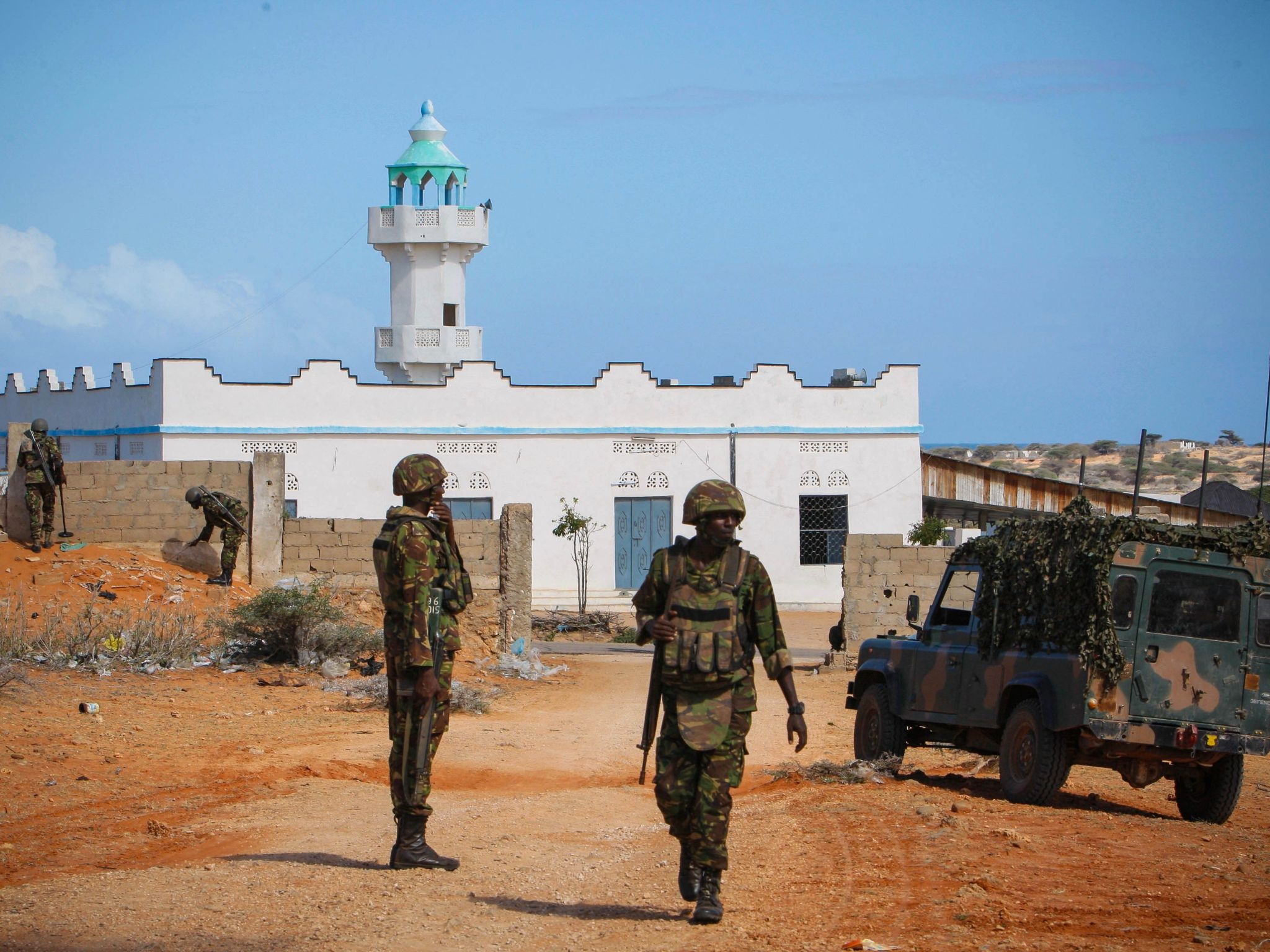The Independent's journalism is supported by our readers. When you purchase through links on our site, we may earn commission.
The US is quietly waging war in Somalia – and Trump has made it worse
After all, the militant groups al-Shabaab and the Islamic State in Somalia (ISS) pose no threat to the US. They’re actually fighting each other. But apparently the president hasn’t grasped that

Only two civilians have been killed or injured in the entirety of the US’s bombing campaign of Somalia — that is, according to the US Africa Command (AFRICOM). But is that true? I doubt it. The campaign has gone on now for more than a decade, and new internal documents, obtained and released last week by The Intercept, give credible evidence that the US “has long been aware of multiple attacks that left civilians dead or wounded following operations by US or allied forces.”
Questions about how many civilians die in America’s drone wars have long been subject to controversy, but there is an even bigger question at hand here: What exactly is the US’s campaign in Somalia supposed to accomplish?
It seems very few have an answer with any weight. After all, the militant groups al-Shabaab and the Islamic State in Somalia (ISS) pose no threat to the US. They’re actually fighting each other. Even after years of onslaught from the US, we haven’t made a dent in their ability to carry out local attacks. Yet we continue to bomb Somalia regularly, releasing statements tallying the number of dead militants — and all the while the security environment remains unchanged.
Ultimately, these strikes are a blood-shedding public relations move. We’re needlessly flexing our military muscles and celebrating how many “terrorists” we’ve killed. US action does nothing to dampen the underlying motivation of insurgents, and it may even serve to create more.
It’s worth remembering that al-Shabaab exists in large part because of blowback from US foreign policy. For nearly two decades, beginning in the early 1990s, Somalia was a pseudo-anarchic space with no central government. But in the early 2000s, the US backed a group of powerful warlords ruling Somalia in exchange for assistance in tracking down members of al-Qaeda. These warlords were vicious and became universally despised across the capital city. Islamist factions banded together in 2006 and ran the warlords out of town, forming the Islamic Courts Union (ICU), taking control of most of southern Somalia and most of its major cities.

There were al-Qaeda elements present in the ICU, but they were a minority — consisting of a few dozen foreign operatives and a handful of Somalis with aspirations of global jihad, according to investigative reporter Jeremy Scahill. By and large, though, the ICU’s concerns were categorically local. Nevertheless, the still-fresh memory of 9/11 pushed forward an all-encompassing philosophy of foreign intervention from the Bush administration — articulated in the 9/11 commission report as “the American homeland is the planet,” whereby elements of terror anywhere were considered an unacceptable risk. The ICU could not be allowed to control Somalia.
The US subsequently sponsored an invasion by neighboring Ethiopia, and the ICU was easily defeated. Out of the ashes arose al-Shabaab, with support from al-Qaeda, and by 2010, al-Shabaab controlled more territory than the US-supported Transitional Federal Government.
Though al-Shabaab was eventually pushed back from most urban areas, American action manufactured the situation in the first place. We unintentionally created the ICU, but then sent them packing, opening up an avenue for al-Shabaab. It’s how Isis, whose emergence owes much to the disastrous war in Iraq, has developed a nascent presence in Somalia — estimates put the number of Somali members of Isis in the hundreds.
Somali Isis and al-Shabaab are enemies. In the middle is the US, intent on eradicating both, with no thought of the unintended consequences that created them in the first place. Of course, neither pose any real threat to our national security. It’s merely bombing for bombing’s sake.
Like most of our foreign policy, US activity in Somalia is driven by an unrealistic risk threshold. Terrorism and insurgency are facts of life — they can’t be eradicated. But their existence in various forms in certain parts of the world doesn’t usually pose a significant risk to our homeland. Yet, for one reason or another, under the Trump administration, the annual rate of airstrikes has tripled.

Currently, al-Shabaab’s numbers are estimated to be between 5,000 and 10,000, controlling roughly 20 per cent of Somalia. Their unifying idea is opposition to Somalia’s Western-backed government — so no amount of bombing by the US is going to stop the pipeline that created them. It’s exactly that which empowers them.
That’s why the US should stop the charade in Somalia. We receive no significant benefit from it, and we create a lot of bad blood in the process. Unfriendly actors in the Horn of Africa simply don’t inherently have implications for US security, and we don’t have business there.
Jerrod A Laber is a senior contributor for Young Voices. Follow him on Twitter @JerrodALaber
Join our commenting forum
Join thought-provoking conversations, follow other Independent readers and see their replies
Comments
Bookmark popover
Removed from bookmarks